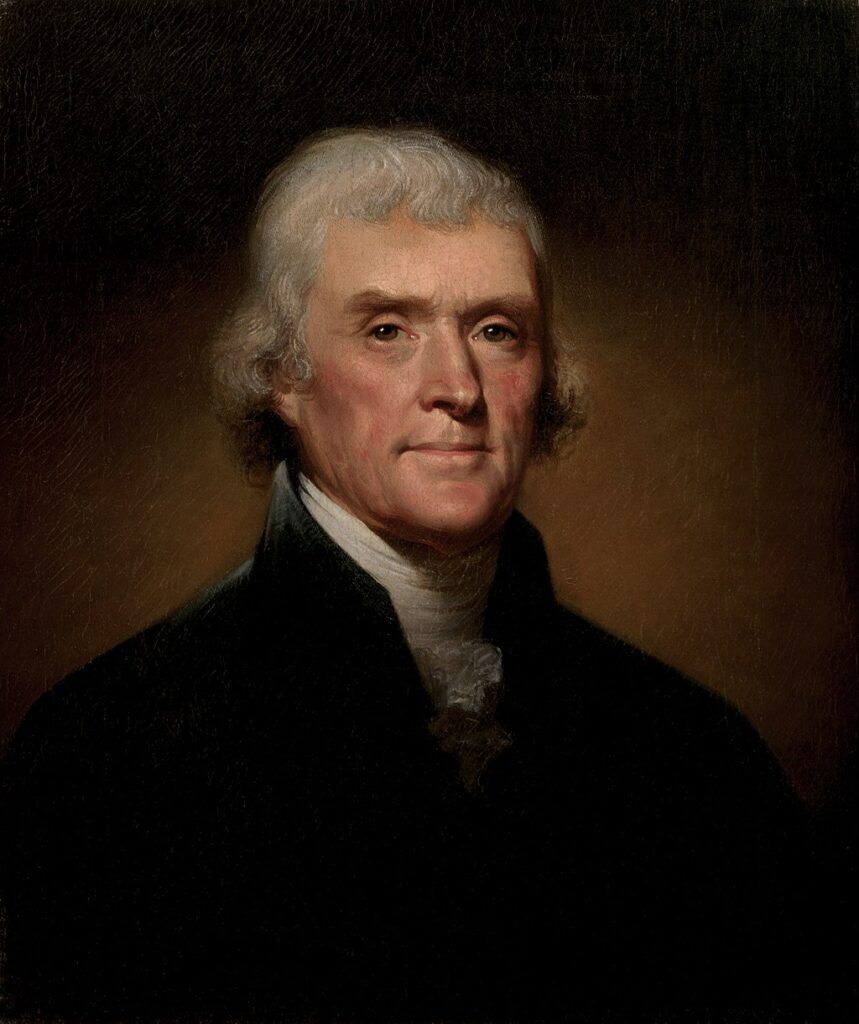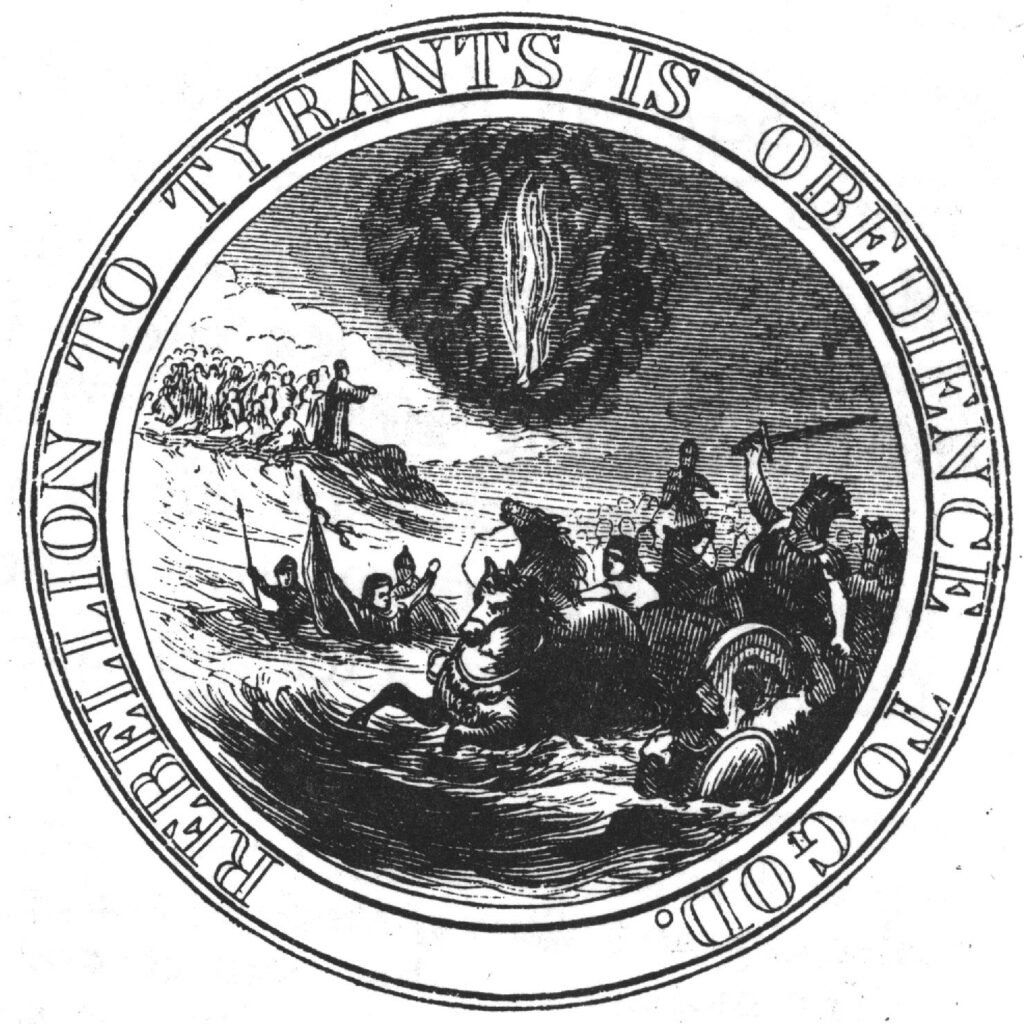“To compare the morals of the old, with those of the new testament, would require an attentive study of the former,” wrote Thomas Jefferson in his October 12, 1813 letter to fellow founding father John Adams. The Jewish commentaries are important too, he adds: “Their Mishna, their Gemara, Cabala, Jezirah, Sohar, Cosri, and their Talmud must be examined and understood, in order to do them full justice.”

In this same letter, Jefferson proceeded to quote from William Enfield’s abridged version of Johann Brucker’s lengthy, and originally Latin, history of philosophy: “From the law of Moses were deduced 613. Precepts, which were divided into two classes, affirmative and negative, 248 in the former, and 365 in the latter.”
Jefferson was rather critical of Judaism. In the same passage that he quoted, Enfield asserted that there was a “low state of moral philosophy among the Jews,” who had “corrupt maxims.” Jefferson, reflecting on Enfield’s analysis, wrote that Jesus had aimed to fight against that.
In an August 4, 1820 letter to William Short, Jefferson remarks how Jews understand G-d as “a being of terrific character, cruel, vindictive, capricious, and unjust.” Jefferson also notes with disapproval how Jewish theology “supposes the G-d of infinite justice to punish the sins of their fathers upon their children, unto the third and fourth generations.”
Now, while Jefferson had his issues with Judaism, or as we will see religion in general, in a further testament to his complicated character he was actually very tolerant when it comes to religious diversity. Not only that — the very liberty of Jewish people among other religions and denominations is the embodiment of Jefferson’s mission.

Interestingly, Jefferson, alongside Adams and Benjamin Franklin, even proposed that the seal of the United States feature Moses and the splitting of the Red Sea, thus drawing an analogy between the Israelites’ freedom from Egypt and American independence from Britain.
In an article for My Jewish Learning historian Michael Feldberg explains that “toleration of all religions, the absence of an official government religion and the right to practice and express religious thought freely are the hallmarks of Jefferson’s legacy.”
Historian Robert M. Healey, in a 1984 journal article for American Jewish History, observes that Jefferson’s “political stance concerning the Jews, as with every religious minority, showed a life-long commitment to secure their freedom and equality, a persistent effort to eliminate discrimination.” He argues that, in fact, Jefferson not only “showed no sign of anti-Jewish prejudice, but rather active commitment to equality and full civil rights for Jews.”
In a January 6, 1826 letter to Jewish writer Isaac Harby, Jefferson despised the idea of schools “imposing on [Jewish children] a course of theological reading which their consciences do not permit them to pursue.”
We are all familiar with the motto “united we stand, divided we fall.” But in a September 1, 1820 letter to Jacob De La Motta, Jefferson expressed his position on religious freedoms as the reverse: “divided we stand, united we fall.” In other words, United States policy should encourage religious diversity.
To be sure, while he had his policy preferences Jefferson promoted his religious view of Unitarian Christianity, writing to Benjamin Waterhouse on June 26, 1822 of his vision “that there is not a young man now living in the United States who will not die an Unitarian.”
But despite this utopia Jefferson had in mind, Healey explains that Jefferson’s kindness towards Jews grew as he “beheld the initial American Jewish efforts to reform Judaism, efforts that went far to meet his Enlightenment rationalist ideals.” He liked when others would go in a similar direction as he.
Healey notes that “Jefferson’s view of Judaism was a phase of the fundamentally critical attitude toward revealed religions of any kind that Jefferson shared with other Enlightenment rationalists.”
In his April 8, 1816 letter to Adams, Jefferson discusses Jewish philosopher David Levi’s book, Dissertation on the Prophecies of the Old Testament, which was in response to Christian philosopher Joseph Priestley. Jefferson called into question Levi’s arguments yet concluded that “such is this war of giants. And how can such pigmies as you and I decide between them?”
Discussing religion in an August 10, 1787 letter to his nephew, Jefferson explained that “in the book of Joshua, we are told, the sun stood still several hours.” After assessing how scientifically realistic this phenomenon would be, and assuming it would have not been the sun, but rather the Earth that would have stopped, he continues: “is this arrest of the earth’s motion, or the evidence which affirms it, most within the law of probabilities?”
Jefferson also rejected the widespread idea among Christians that Jesus was the son of G-d. Rather, he just believed that Jesus was a brilliant and correct preacher and religious reformer. In his work The Life and Morals of Jesus of Nazareth, also referred to as the “Jefferson Bible,” Jefferson compiled a shorter version of the New Testament focused on Jesus’s teachings. However, Jefferson left out numerous miracles and passages that suggest Jesus is a deity.
Historian Edwin Gaustad, in his religious biography of Jefferson, wrote that “if a moral lesson was embedded in a miracle, the lesson survived in Jeffersonian scripture, but the miracle did not.” He continues: “Jefferson managed to maintain Jesus’ role as a great moral teacher, not as a shaman or faith healer.”
Healey notes that Jefferson’s mention of Judaism is limited in this revised New Testament of his. While Jewish people are seen in a negative light in some passages that Jefferson included, his version never blatantly blames the Jews for the death of Jesus. “For all that,” Healey adds, “Jefferson did seem to place the responsibility for the martyrdom of his benevolent reformer upon the ‘combination of altar and throne.’” In other words, not the whole people but a select group of parties. Also, Jefferson excluded two particularly problematic parts of the New Testament which were sources of antisemitism.
This all goes to show how Jefferson, while certainly critical of the Jewish religion, was more generally skeptical of religious dogmatism. This could be why Jefferson was opposed to religious intolerance in government policy.
Just a few months after the Declaration of Independence there was a debate in the Virginia House of Delegates over the Bill for the Naturalization of Foreigners, which Jefferson had pushed forward. It had originally been intended just for Protestants, but Jefferson revised the draft to include other groups as well, including Jews. During the debate he had written notes on the back of a draft of the bill, and among the things he jotted down was “Jews advantageous.” Despite Jefferson’s efforts, the bill was never seen all the way through.
Ten years later the Virginia General Assembly passed the Virginia Statute for Religious Freedom, which was written by Jefferson and stated that “no man shall be compelled to frequent or support any religious worship” and “all men shall be free to profess, and by argument to maintain, their opinion in matters of religion.”
This statute was a precursor to religious freedom under the First Amendment, and its passing was so important to Jefferson that it is one of only three accomplishments he wanted inscribed on his tombstone for eternity. The others, of course, are authoring the Declaration of Independence and founding the University of Virginia.
I saw this tombstone upon visiting Monticello, Jefferson’s home, during a family trip a few months ago. Since there was hardly any Jewish life in this part of Virginia, what struck me was the the first thing anybody would see upon visiting this National Historic Landmark: the “David M. Rubinstein Visitor Center,” which is dedicated to the Jewish philanthropist.
Even more remarkable was a book we came across at the Monticello gift shop, which details efforts by the Levy family, who as you might guess were Jewish, to save Monticello. Uriah Levy bought the property a few years after Jefferson’s death in order to restore it.
So, it seems that things have come around full circle, as Jewish people, among whom Jefferson sought to protect, were at the forefront of preserving his historic property. Levy lauded Jefferson for his efforts in favor of religious freedom: “[Jefferson] did much to mold our Republic in a form in which a man’s religion does not make him ineligible for political or governmental life.”
As we celebrate July 4th, we should appreciate how Thomas Jefferson, the very author of the vitally important Declaration of Independence ratified on this day, championed the rights of Jewish people in the newly formed United States and should indeed be considered a friend of the Jews.